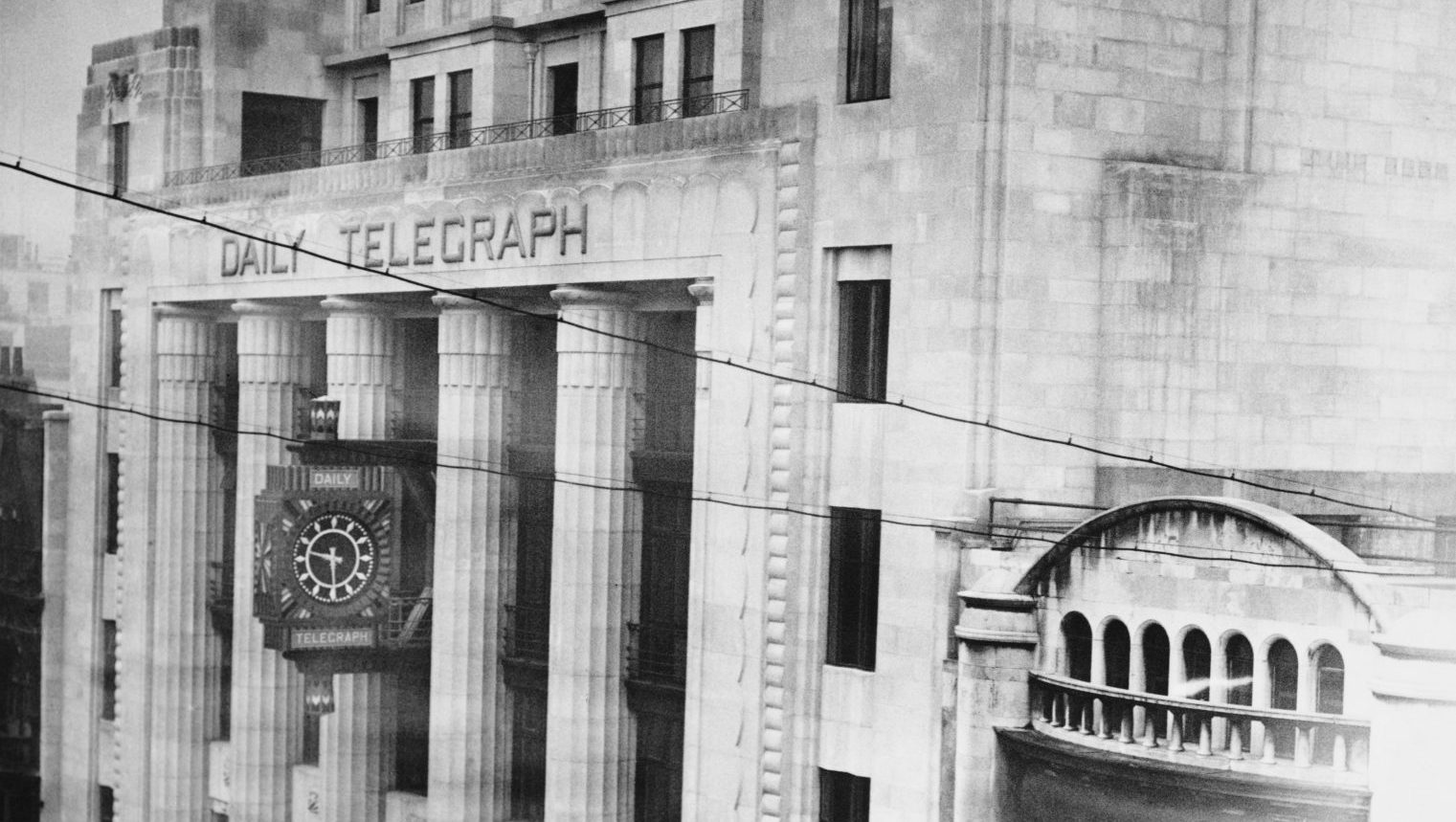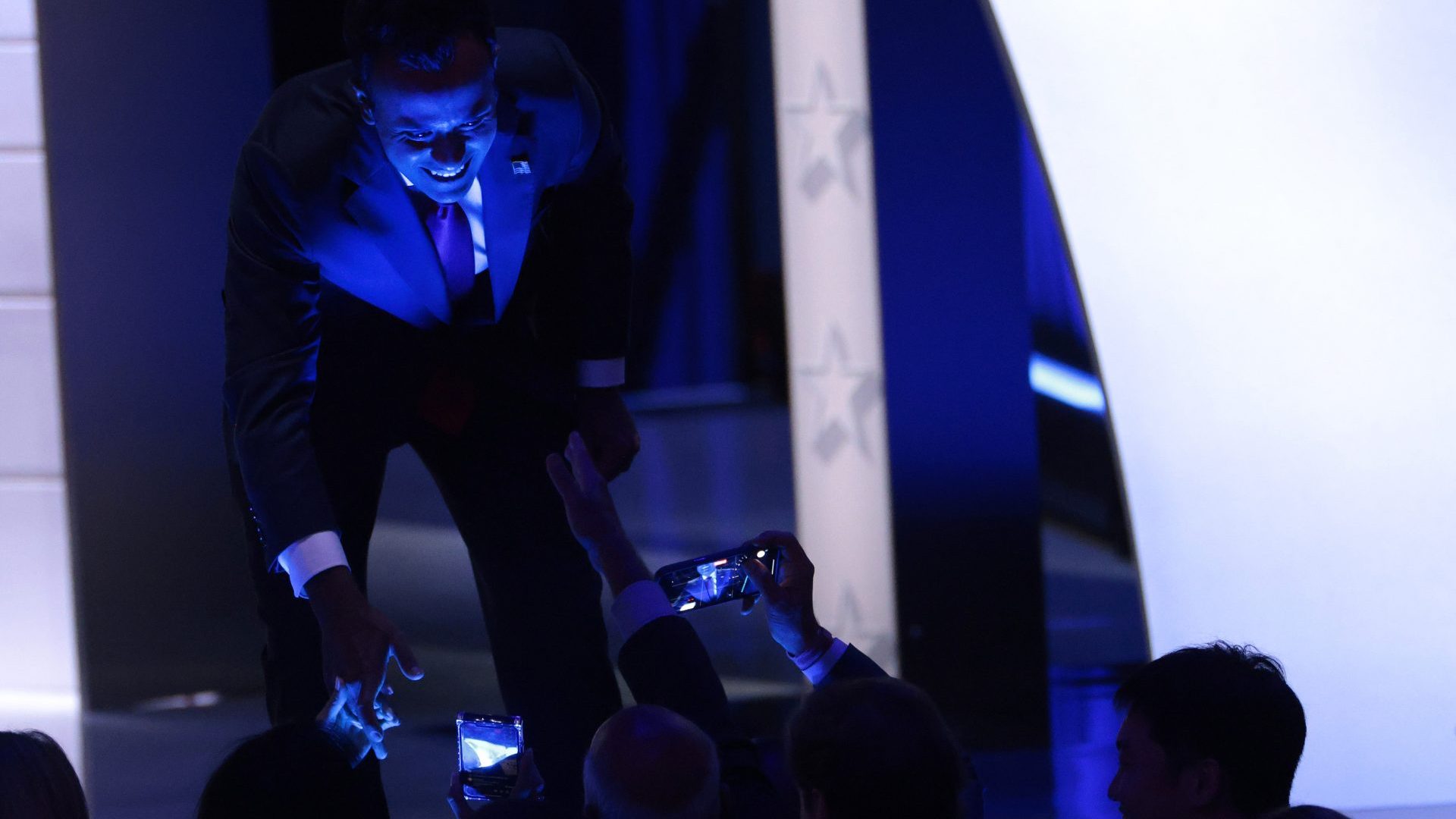With Howard Barclay – the nephew of the former Telegraph Media Group owner Sir Frederick Barclay – admitting the publishing empire is now a “distressed asset” that’s not going to be easy to sell, a potential saviour has belatedly emerged in the shape of Martin Clarke, the media executive who created MailOnline.
Mandrake is reliably informed that Clarke is getting together a consortium of investors to bid for the Telegraph titles where the prize is not the dying print titles, but the near one million affluent subscribers to its digital offering. This will pitch Clarke into a direct fight with his former boss Lord Rothermere, who has confirmed he also has an interest in acquiring the titles.
In March, I reported how Clarke, with another group of investors that had included Jimmy Finkelstein, the founder of the political news site The Hill, had made an audacious approach to Rothermere to buy MailOnline outright, but had been summarily rebuffed by his lordship.
Clarke has been struggling to find a role for himself since he announced he was leaving the Mail group after Lord Rothermere’s mystifying reshuffle in 2021 that also saw the departure of the Daily Mail editor Geordie Greig, the installation of Ted Verity as his successor and the return of Paul Dacre as editor-in-chief.
Lloyds Bank has been the reluctant owner of the Telegraph titles and the Spectator since early June when it seized control after a loan the bank had made to the Barclay family of £1bn turned bad. Howard Barclay’s comments – made in court during his uncle Sir Frederick Barclay’s ongoing tussle over money with his former wife Lady Hiroko – confirmed what I’d reported about the media empire not being worth anywhere near the £600m price tag that had originally been placed on it.
“Don’t expect a bidding war between Clarke and Rothermere as both sides are realistic about what the titles are worth,” says my source who is close to the sale process. “Rothermere certainly doesn’t want to be the sole source of funds in any potential acquisition and has made it clear he’s only willing – like Clarke – to take it over as part of a consortium. Both sides want the Telegraph’s digital subscribers and my hunch is the group will be broken up with Rupert Murdoch taking over the Spectator, which he apparently wants to expand still further in America as a kind of digital version of Fox News.”
The Barclay family are also said to be trying to regain control of the titles – if not also their amour-propre – with backing from an unidentified group of investors based in Abu Dhabi.
Rothermere has, meanwhile, been mulling over the closure of the Daily Mail’s Sunday sister title the Mail on Sunday. Like Clarke, he doesn’t see a future for print journalism, and, like Clarke, would envisage the Telegraph’s future as a lean, mean digital operation, which would almost certainly involve redundancies and the eventual closure of the Daily and Sunday Telegraph in their printed forms.
It is a symptom of being a former prime minister that an inordinate amount of time is spent reliving every moment in office, and, when things went wrong, apportioning blame elsewhere.
In her forthcoming book, The Abuse of Power, Theresa May accuses John Bercow, the former speaker, of thwarting her Brexit deal. “We got to a point where the DUP were being positive,” May told the Sunday Times over the weekend. “We were actually at the point of them being willing to say they would support the deal. The normal processes went on in terms of going to the Speaker to talk about the motion, and he wouldn’t let us put the motion down. So that meant we couldn’t have the debate, we couldn’t have the vote, and, by the time we did, the DUP had changed their mind. And so there was a point we could have had a vote to do Brexit on the basis of the deal. He took a decision that meant that didn’t go ahead.”
Bercow sighs wearily when I raise it with him, and says the reality is he had no alternative but to deny the motion because it had already been put before and the rules are clear that the same motion cannot be put forward a second time. “I explained this to David Liddington and Geoffrey Cox when they came to see me and they didn’t dispute what I said,” Bercow tells me. “I offered them various ways round it, such as beginning a new session of parliament or putting the motion forward in two parts, and they considered this. If May felt so strongly I had got this wrong or was abusing my position it seems extraordinary she didn’t ask to see me herself. She did not.”
With the numbers stacked against her in the Commons, it is unlikely, even if Bercow hadn’t taken this position, she would have got her deal through.
“I have some respect for Mrs May – certainly more than I do, say, for Boris Johnson or Liz Truss – but on this one she is living in Walter Mitty land.”
My man at Tory headquarters confides that Rishi Sunak is to drop his trousers ahead of the next general election. There is, however, no need to be alarmed.
He was merely alluding to the fact Sunak, stung by persistent criticism that he was wearing trousers that were much too short, had decided to lower them. The rationale behind the short prime ministerial trousers – Sunak has long taken style advice from Cass Horowitz, the son of author Anthony Horowitz – was that they made him look taller than he is. At just 5ft 6in tall, Sunak happens to be the shortest occupant of No 10 since Winston Churchill, who was 5ft 5in.
Over the weekend, Sunak was in normal full-length trousers at the Wensleydale Agricultural Show in his North Yorkshire constituency. Without the visual trick of the short trousers, he did admittedly look as if was struggling to measure up to some of the taller sheep.
It is up for debate whether Boris Johnson’s Daily Mail column is more boring than Anne Widdecombe’s in the Express, but both could do with editors willing to give them a bit more guidance, if not also the occasional reprimand.
Widdecombe could well be asked why she has just told a columnist on the Mail how she’d been rung up by someone posing as Boris Johnson who’d asked her to join a new political party, but, after checking with the real Johnson, established it was a hoax.
Not maybe the greatest story in the world, but eminently better than what Widdecombe had just chosen to regale Express readers with in her own column last week – lame anecdotes about how it was difficult to park in her village when the Lionesses were on and how she got a free Kit-Kat on the train because the WiFi wasn’t working.
Johnson has a tendency, too, to give his best stories to other newspapers and his loyalty to the Mail is likely to be tested again when he eventually completes his memoirs – does he give it to his own newspaper or one in the Rupert Murdoch stable? If it’s true Murdoch’s HarperCollins imprint is paying him £6m for his book and Lord Rothermere’s Mail a mere £1m for the column in a two-year deal, then it’s pretty clear which way he’ll jump.




